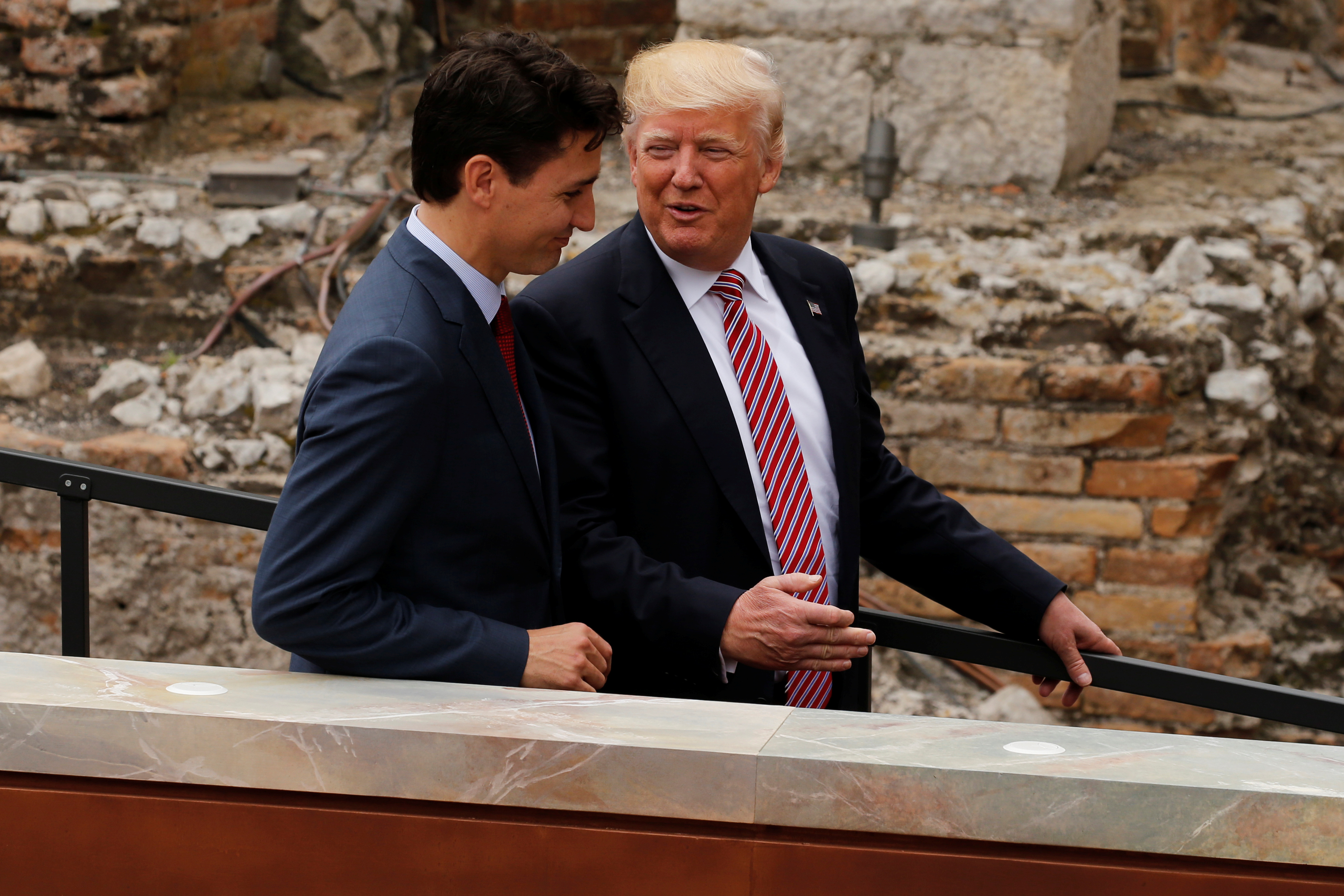How Trump softened on NAFTA
So far, the Trump administration's aims for NAFTA appear to be "closer to revision than destruction"

A free daily email with the biggest news stories of the day – and the best features from TheWeek.com
You are now subscribed
Your newsletter sign-up was successful
The smartest insight and analysis, from all perspectives, rounded up from around the web:
President Trump "has gone squishy" on the North American Free Trade Agreement, said Peter Coy at Bloomberg Businessweek. With NAFTA renegotiations slated to begin Aug. 16, many analysts expected the Trump administration "to take a hard, nationalistic line" on updating the three-way pact with Mexico and Canada. Earlier this year, Trump called the 1994 agreement "the worst trade deal maybe ever signed anywhere," and threatened to slap a 20 percent tariff on Mexican goods to pay for the border wall. But instead of a wholesale overhaul, Trump is now aiming for a modest revamp. The official objectives released by the White House last week "aim to tune up, not gut" the trade pact, with a U.S. recommitment to tariff-free, quota-free trade with its neighbors, along with some tough, but largely symbolic, language about reducing trade deficits. The rest of the 17-page document is "mostly mainstream ideas for furthering trade liberalization, such as speeding goods through customs." Overall, the administration's stated goals "are surprisingly tame."
Free-trade advocates "are breathing sighs of relief," said Jonathan Swan at Axios. Some feared that administration hard-liners like Stephen Bannon and National Trade Council Director Peter Navarro would include "poison pills," such as new border taxes, that would render the negotiations "dead on arrival." But there's nothing in the White House's game plan "that terrifies establishment Republicans on Capitol Hill or the Mexicans and Canadians who'll ultimately be sitting across the negotiating table." Still, "disguised in the dry, sanitized language" of the administration's objectives were "fighting words," said Ana Swanson at The Washington Post. Two possible points of contention: The White House wants to move disputes over anti-dumping duties and other retaliatory trade measures from an international arbitration panel to a U.S. trade court. It also wants to scrap a special exemption for Canada and Mexico that protects them from U.S. tariffs and quotas designed to help specific industries "seriously injured" by international trade. You can expect both countries to fight back hard against these proposed changes.
The Week
Escape your echo chamber. Get the facts behind the news, plus analysis from multiple perspectives.

Sign up for The Week's Free Newsletters
From our morning news briefing to a weekly Good News Newsletter, get the best of The Week delivered directly to your inbox.
From our morning news briefing to a weekly Good News Newsletter, get the best of The Week delivered directly to your inbox.
"The stakes are high," said The Economist. The U.S. does roughly a quarter of its trade in goods and services with Canada and Mexico. "The three economies tend to grow or shrink together and have integrated supply chains." So far, the Trump administration's aims for NAFTA appear to be "closer to revision than destruction." But if U.S. negotiators end up emphasizing more-Trumpian themes at the table, "the talks could take an angry turn." That would be a shame, said Mary Anastasia O'Grady at The Wall Street Journal. Less than 13 percent of the total U.S. trade deficit is with its NAFTA partners. What's more, continental free trade helps U.S. companies to be more competitive globally. Because U.S. automakers can rely on production facilities in all three NAFTA countries, they "turn out cars and trucks that compete on price and quality all over the world." The White House's objectives "are largely constructive. But Trump protectionists have planted a few land mines."
A free daily email with the biggest news stories of the day – and the best features from TheWeek.com
-
 Britain’s ex-Prince Andrew arrested over Epstein ties
Britain’s ex-Prince Andrew arrested over Epstein tiesSpeed Read The younger brother of King Charles III has not yet been charged
-
 Political cartoons for February 20
Political cartoons for February 20Cartoons Friday’s political cartoons include just the ice, winter games, and more
-
 Sepsis ‘breakthrough’: the world’s first targeted treatment?
Sepsis ‘breakthrough’: the world’s first targeted treatment?The Explainer New drug could reverse effects of sepsis, rather than trying to treat infection with antibiotics
-
 The pros and cons of noncompete agreements
The pros and cons of noncompete agreementsThe Explainer The FTC wants to ban companies from binding their employees with noncompete agreements. Who would this benefit, and who would it hurt?
-
 What experts are saying about the economy's surprise contraction
What experts are saying about the economy's surprise contractionThe Explainer The sharpest opinions on the debate from around the web
-
 The death of cities was greatly exaggerated
The death of cities was greatly exaggeratedThe Explainer Why the pandemic predictions about urban flight were wrong
-
 The housing crisis is here
The housing crisis is hereThe Explainer As the pandemic takes its toll, renters face eviction even as buyers are bidding higher
-
 How to be an ally to marginalized coworkers
How to be an ally to marginalized coworkersThe Explainer Show up for your colleagues by showing that you see them and their struggles
-
 What the stock market knows
What the stock market knowsThe Explainer Publicly traded companies are going to wallop small businesses
-
 Can the government save small businesses?
Can the government save small businesses?The Explainer Many are fighting for a fair share of the coronavirus rescue package
-
 How the oil crash could turn into a much bigger economic shock
How the oil crash could turn into a much bigger economic shockThe Explainer This could be a huge problem for the entire economy